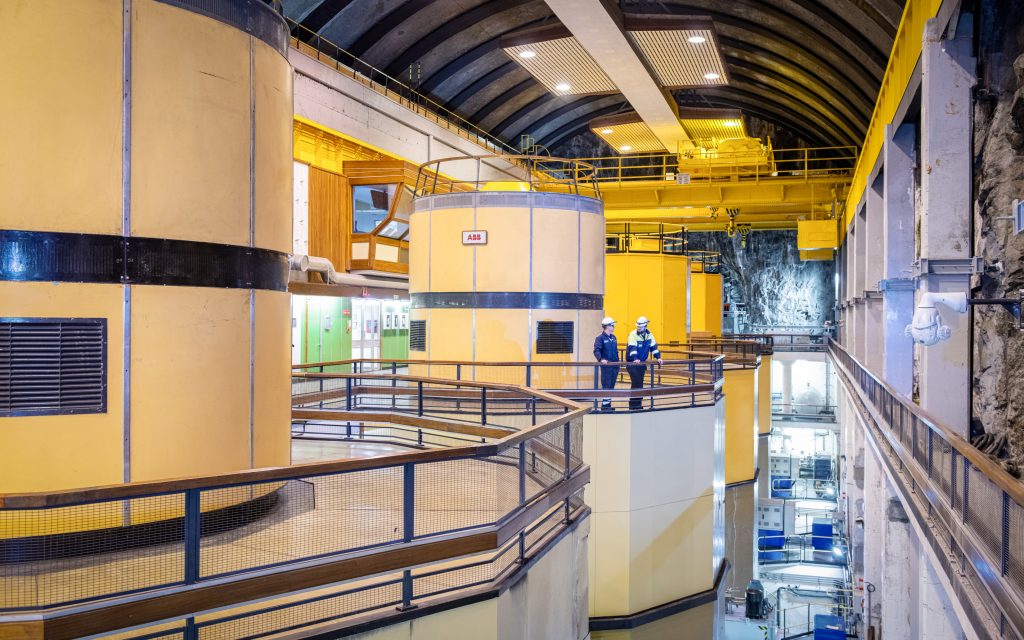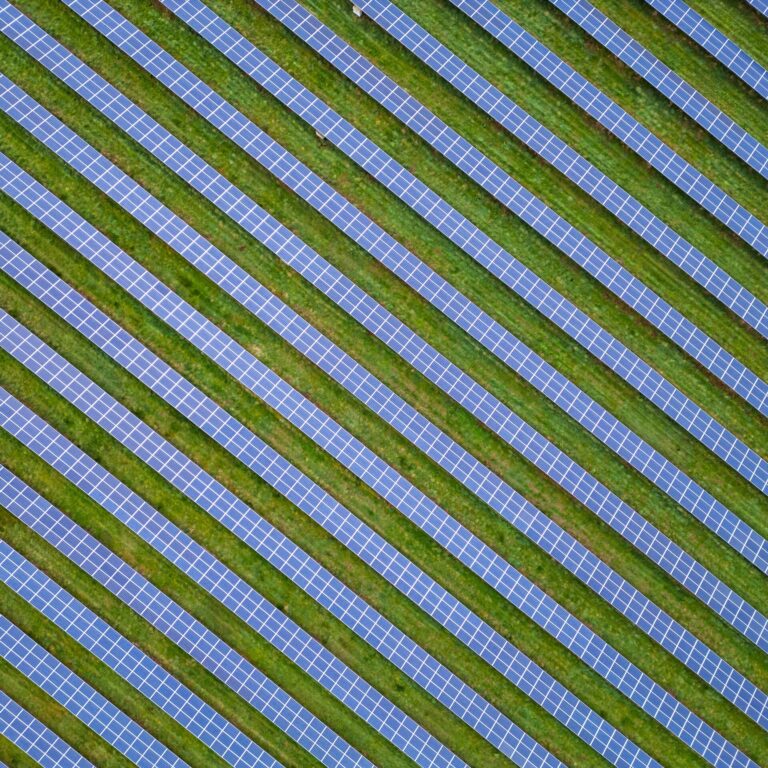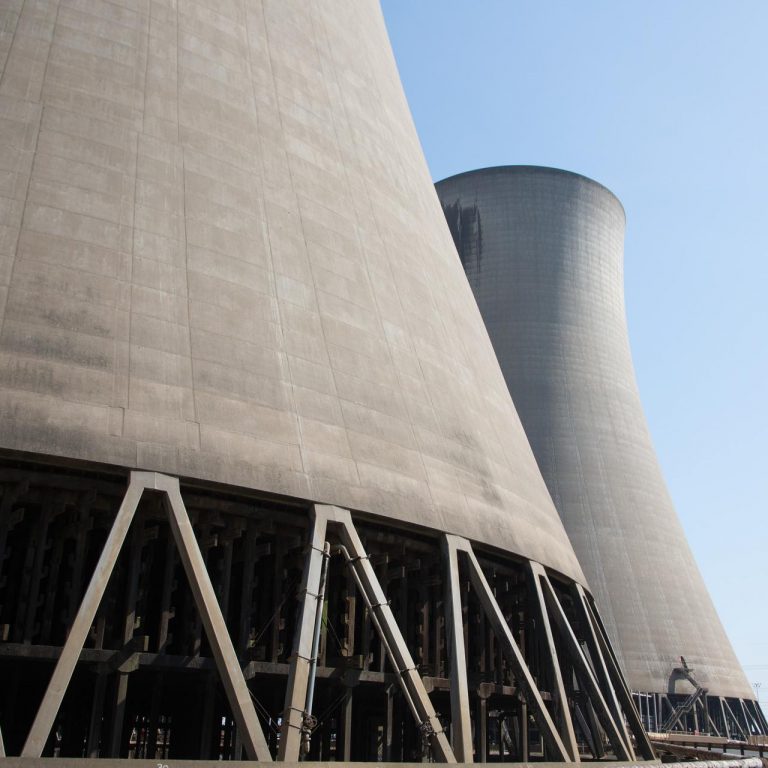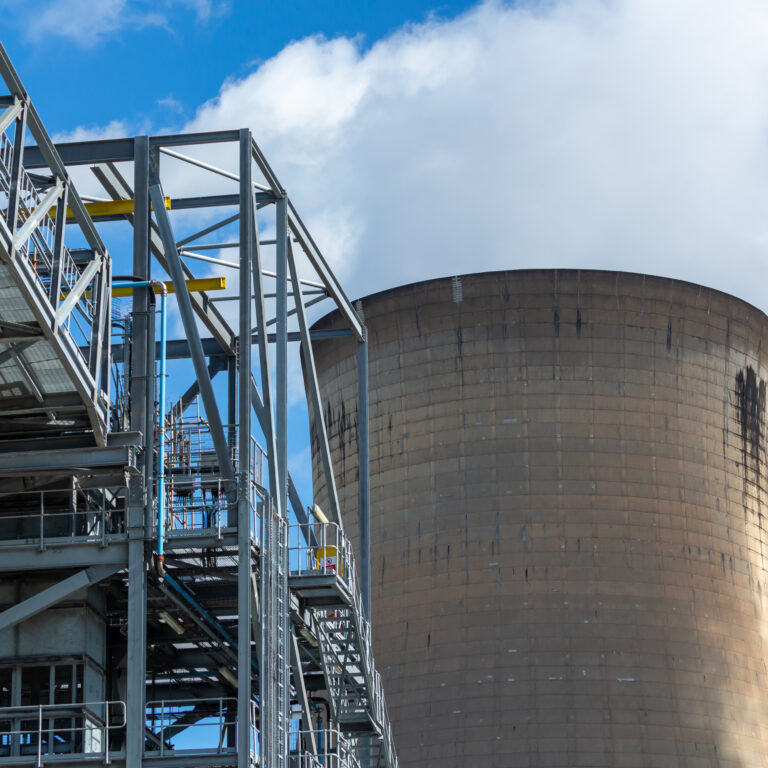-
National Grid has awarded ‘synchronous compensation’ contract to Drax’s Cruachan pumped storage hydro power station
-
The contract is to provide system services to keep the national grid stable
The contract means Drax will provide services such as inertia, which keeps the system stable, and reactive power which helps move power around the grid, for the next six years.

Andy Koss, CEO Generation, Drax, at Cruachan Power Station. Click to view/download in high res.
System services such as inertia and reactive power were readily available in the past due to the number of large ‘spinning’ power stations on the electricity system, but the rise of non-synchronous generators such as solar, wind and interconnectors mean these services are now more important and have to be procured separately.
Andy Koss, CEO Drax Generation, said:
“Provision of these crucial services is central to Drax’s purpose of enabling a zero carbon, lower cost energy future. Our strategic aim is to be a leading provider of system services which support the deployment of more renewable power – it could also help to bring us a step closer to our ambition to become a carbon negative company by 2030.”
This is the first tender National Grid ESO has run under phase one of its System Stability Pathfinder. Under the terms of the provisional contract, one of the four turbines at the 440MW Cruachan pumped storage hydro power station in Argyll and Bute, will no longer generate power. Instead the turbine will only be used to provide the services needed to support the system.
National Grid currently plans further stability tenders to take place, both nationally and regionally, which provide an opportunity to secure further contracts for some of Drax’s other power generation assets.
Notes to editors
- National Grid ESO’s System Stability Pathfinder tender is separate to the Capacity Market Auctions starting tomorrow and units are able to take part in both processes provided they are available to provide the contracted services.
- Inertia is a system support service which acts like a shock absorber helping to control changes in frequency, to ensure the grid maintains a frequency of 50Hz. Without having enough inertia available to reduce the rate of frequency changes which occur on the system, the grid is more vulnerable to power cuts.
- National Grid made an announcement about its new approach to stability services today.
ENDS
Media contacts
Ali Lewis
Drax Group Head of Media & PR
E: [email protected]
T: 07712670888
Aidan Kerr
Drax Group Media Manager
E: [email protected]
T: 07849 090368
Photo caption: Engineers look out from beside a turbine within Cruachan Power Station in Scotland (view/download)
About Drax
Drax Group’s purpose is to enable a zero carbon, lower cost energy future. Its 2,900-strong employees operate across three principal areas of activity – electricity generation, electricity sales to business customers and compressed wood pellet production.
Power generation:
Drax owns and operates a portfolio of flexible, low carbon and renewable electricity generation assets across Britain. The assets include the UK’s largest power station, based at Selby, North Yorkshire, which supplies five percent of the country’s electricity needs.
Having converted two thirds of Drax Power Station to use sustainable biomass instead of coal it has become the UK’s biggest renewable power generator and the largest decarbonisation project in Europe.
Its pumped storage, hydro and energy from waste assets in Scotland include Cruachan Power Station – a flexible pumped storage facility within the hollowed-out mountain Ben Cruachan. It also owns and operates four gas power stations in England.
Customers:
Drax owns two B2B energy supply businesses:
- Haven Power, based in Ipswich, supplies electricity and energy services to large Industrial and Commercial sector businesses.
- Opus Energy, based in Oxford, Northampton and Cardiff, provides electricity, energy services and gas to small and medium sized (SME) businesses.
Pellet production:
Drax owns and operates three pellet mills in the US South which manufacture compressed wood pellets (biomass) produced from sustainably managed working forests. These pellet mills supply around 20% of the biomass used by Drax Power Station in North Yorkshire to generate flexible, renewable power for the UK’s homes and businesses.
For more information visit www.drax.com/uk



















